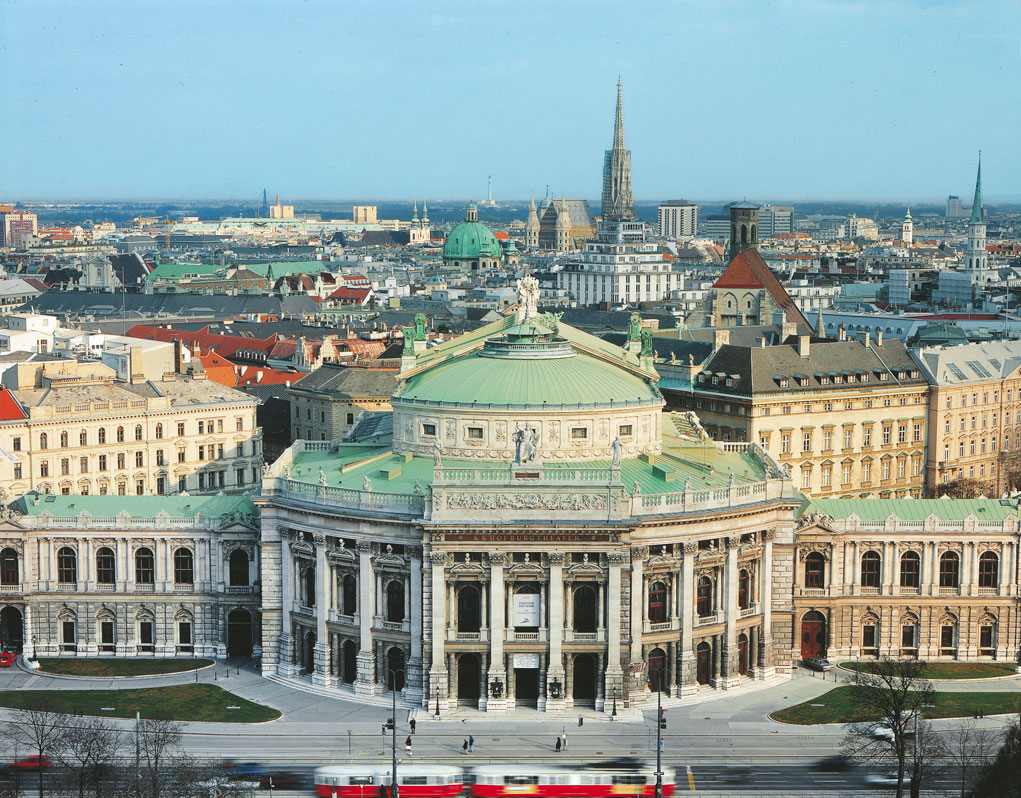House Of History Austria - Vienna
Vienna, Austria is a beautiful destination that's well worth a visit. The city has a rich cultural heritage, with a focus on music, art, and architecture. But before we dive into the history and address of Vienna, let's take a moment to appreciate the stunning Vienna Opera House.

The Vienna Opera House is a true masterpiece of architecture. It was opened in 1869 and is considered one of the most important opera houses in the world. The building has hosted some of the world's most famous musicians and orchestras, including Beethoven, Mozart, and Brahms.
But Vienna is much more than just an opera house. The city is a melting pot of different cultures, with a long and complex history. Let's take a closer look at some of the city's highlights.
Vienna played a crucial role in European history for centuries. In the 16th and 17th centuries, the Habsburgs ruled over a vast empire, which at its height included much of modern-day Austria, Hungary, and parts of Italy and the Balkans.
During this time, Vienna became a hub of culture and learning. Many of the world's greatest composers, artists, and thinkers lived and worked in Vienna, including Wolfgang Amadeus Mozart, Ludwig van Beethoven, and Sigmund Freud.
One of the most striking features of Vienna is its stunning architecture. The city is home to many beautiful buildings, including St. Stephen's Cathedral, the Hofburg Palace, and the Belvedere Palace. The city has been shaped by many different architectural styles throughout its history, including Gothic, Baroque, and Art Nouveau.
Another highlight of Vienna is its coffeehouse culture. The city is famous for its classic coffeehouses, which date back to the 19th century. These coffeehouses were hubs of intellectual and artistic activity, and many famous writers and thinkers spent their days here, discussing ideas over a cup of coffee.
Vienna is also a city of museums. There are many great museums in the city, covering everything from art and history to science and technology. Some of the best museums in the city include the Kunsthistorisches Museum, the Naturhistorisches Museum, and the Museum of Applied Arts.
Now let's take a closer look at the history and address of Vienna.
History
Vienna has a long and complex history, dating back to the Roman Empire. The first settlements in the area were established around 500 BC by the Celts. Later, the Romans established a military camp here, which eventually grew into a small town.
In the Middle Ages, Vienna became an important trading center, and in the 16th and 17th centuries, it became the capital of the Habsburg Empire. The city played a major role in European history during this time, and many of its most famous landmarks were built during this period.
Vienna suffered heavily during both World War I and World War II, but the city was quickly rebuilt after each conflict. Today, Vienna is a modern and vibrant city, with a rich cultural heritage and a thriving arts and music scene.
Address
Vienna is the capital city of Austria, and is located in the eastern part of the country. The city is situated on the banks of the Danube River, and is surrounded by the Vienna Woods.
If you're planning a trip to Vienna, there are many great hotels and hostels in the city to choose from. Some of the most popular areas to stay in include the historic city center and the trendy district of Neubau.
There are also many great restaurants, cafes, and bars in Vienna, serving traditional Austrian cuisine as well as international dishes. Some of the best places to eat in the city include Figlmüller, Café Central, and Plachutta.
FAQ
Q: What is the best time to visit Vienna?
A: The best time to visit Vienna is during the spring and fall, when the weather is mild and there are fewer tourists. However, the city is beautiful year-round, and there are many great festivals and events throughout the year.
Q: What are some must-see attractions in Vienna?
A: Some of the must-see attractions in Vienna include St. Stephen's Cathedral, the Hofburg Palace, and the Vienna State Opera. The city is also home to many great museums, including the Kunsthistorisches Museum and the Naturhistorisches Museum.
Q: What is the local currency in Vienna?
A: The local currency in Vienna is the Euro. Most hotels, restaurants, and shops in the city accept credit cards, but it's a good idea to have some cash on hand just in case.
Q: Is Vienna a safe city?
A: Yes, Vienna is generally a very safe city. However, as with any city, it's important to be aware of your surroundings and take precautions to avoid pickpockets and other petty thieves.
Q: What is the transportation system like in Vienna?
A: Vienna has a great public transportation system, including buses, trams, and the U-Bahn (subway). Tickets can be purchased at any station, and there are many different ticket options to choose from.
All in all, Vienna is a fantastic destination with something to offer for everyone. Whether you're interested in history, culture, music, or food, you're sure to find plenty to keep you busy in this beautiful city.




Post a Comment for "House Of History Austria - Vienna"